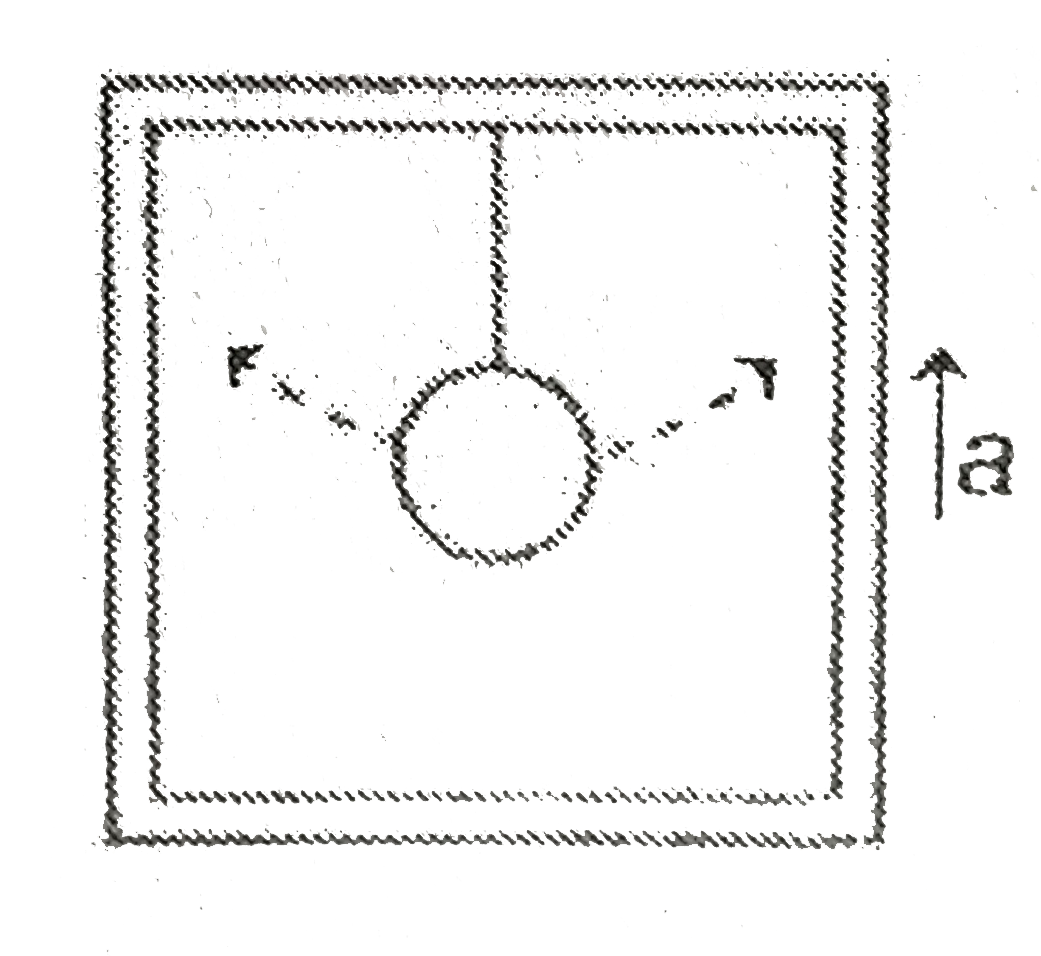A lift is moving vertically upwards with an acceleration a. What will be the changed time period of a simple pendulum suspended from the roof of the lift? If the lift becomes free and starts falling down with the acceleration due to gravity, what will be the change in the time period?
Acceleration due to gravity (downwards) = g
Acceleration of the lift (upwards) = -a
Hence, the effective acceleration due to gravity with respect to the lift, g.=g−(−a)=g+a
Therefore, the time period of the pendulum in the lift,
T.=2π√Lg+a
We compare it with the time period inside the lift with no acceleration: T=2π√Lg
∴ TT.=√g+agor,T.=T√gg+a
As g<(g+a),T.<T, hence, in this case, the time period will decrease. When the lift is falling freely downwards, its acceleration a = g. Hence, the acceleration due to gravity with respect to the lift, g. = g - a = g - g = 0
Hence, the time period, in this case, T.=2π√Lg. = infinity.
Infinite time period signifies that the pendulum will not oscillate at all.
Related Playlists
- BOOK - CHHAYA PUBLICATIONCHAPTER - SIMPLE HARMONIC MOTIONEXERCISE - EXERCISE33videos
SIMPLE HARMONIC MOTION
- BOOK - CHHAYA PUBLICATIONCHAPTER - SIMPLE HARMONIC MOTIONEXERCISE - VERY SHORT ANSWER TYPE QUESTIONS23videos
SIMPLE HARMONIC MOTION
- BOOK - CHHAYA PUBLICATIONCHAPTER - SIMPLE HARMONIC MOTIONEXERCISE - SECTION RELATED QUESTIONS8videos
SIMPLE HARMONIC MOTION
- BOOK - CHHAYA PUBLICATIONCHAPTER - ROTATION OF RIGID BODIES EXERCISE - CBSE SCANNER10videos
ROTATION OF RIGID BODIES
- BOOK - CHHAYA PUBLICATIONCHAPTER - STATICSEXERCISE - CBSE SCANNER3videos
STATICS
Similar Questions
Time period of a simple pendulum in a freely falling lift will be
View SolutionTime period of a simple pendulum in a freely falling lift will be
View SolutionA seconds pendulum is suspended form the roof of a lift. If the lift is moving up with an acceleration 9.8m/s2, its time period is
View SolutionThe time period of a simple pendulum oscillating in a freely falling lift is
View SolutionTime period of a simple pendulum is T inside a lift when the lift is stationary. If the lift moves upwards with an acceleration g/2, the time period of pendulum will be:
View SolutionThe time period of a simple pendulum measured inside a stationary lift is found to be T . If the lift starts accelerating upwards with an acceleration g/3, the time period is
View SolutionThe time period of a simple pendulum measured inside a stationary lift is found to be T . If the lift starts accelerating upwards with an acceleration g/3, the time period is
View SolutionA scientist measures the time period of a simple pendulum as T in a lift at rest. If the lift moves up with accelerationi as one fourth of the acceleratioin of gravity, the new time period is
 View Solution
View SolutionA scientist measures the time period of a simple pendulum as T in a lift at rest. If the lift moves up with accelerationi as one fourth of the acceleratioin of gravity, the new time period is
 View Solution
View SolutionThe time period of a simple pendulum is T remaining at rest inside a lift. Find the time period of pendulum when lift starts to move up with an acceleration of g/4
View Solution

